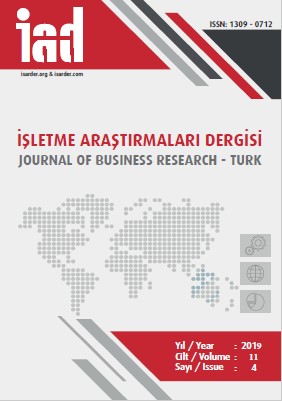Yolcu Taşıma Maliyetlerinin Faaliyet Tabanlı Maliyetleme Yöntemine Göre Hesaplanması: Devlet Demiryolları İşletmesinde Vaka Çalışması
Calculation of Passenger Transport Costs in Accordance With the Activity-Based Costing Method (ABC): A Case Study in the State Railways
Author(s): Beyhan Beller Dikmen, Zeki Doğan, Ali DeranSubject(s): Business Economy / Management, Methodology and research technology, Accounting - Business Administration, Transport / Logistics
Published by: Orhan Sağçolak
Keywords: Transportation Sector; State Railways; Transportation Costs; Traditional Costing Method; Activity-Based Costing Method (ABC);
Summary/Abstract: Purpose – Activity-based costing method developed by Dr. Robin Cooper in 1985 ensures accurate calculation of goods or service costs by determining the costs of resource and activities consumed during goods or service production. The method of improving costs in order to increase the performance measurements of the enterprises also helps the executives of the enterprises in making decisions. The decisions to be taken in the transportation sector, which enables the transportation of people and manufactured products or services, and the costs to be incurred in line with these decisions are of great importance. In this study, activity-based costing method is examined in the calculation of costs of the service provided to the passengers by TCDD (The State Railways of the Republic of Turkey) operating in the transportation sector, and the design of transportation costs in accordance with activity-based costing method is demonstrated by utilizing the case study method. Design/methodology/approach – In this study, case study method is used in order to systematically investigate special cases in the transportation sector. Findings: In the study; it is detected that the unit costs of passenger per seat and per Km calculated according to the traditional costing method of the enterprise exceed the unit costs of passengers per seat and per Km calculated according to activity-based costing method.
Journal: İşletme Araştırmaları Dergisi
- Issue Year: 11/2019
- Issue No: 4
- Page Range: 2856-2875
- Page Count: 20
- Language: Turkish

